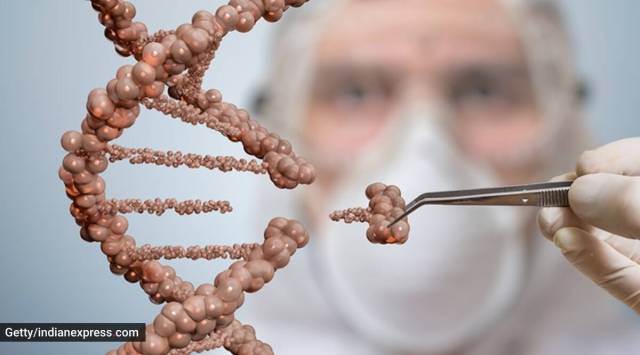Stay updated with the latest - Click here to follow us on Instagram
Early detection and diagnosis of cancer: Need and roadmap for the future
Cancer is soon slated to become the leading cause of mortality globally and controlling its onslaught clearly calls for urgent measures.
 The burgeoning number of cancer cases worldwide urgently call for new and more effective measures that can mitigate the impact of this disease.
The burgeoning number of cancer cases worldwide urgently call for new and more effective measures that can mitigate the impact of this disease. Written by Dr Kanury Rao, Co-founder and CSO, PredOmix
The twenty-first century is witnessing a rapid global growth in both cancer incidence and mortality. Worldwide there are close to 20 million new cases of cancer detected and about 10 million cancer deaths each year. The World Health Organization (WHO) estimates that cancer is the first or second leading cause of death before the age of 70 years in 112 of 183 countries and ranks third or fourth in a further 23 countries. The situation in India is equally grim with the number of people suffering from cancer being projected to increase to 29.8 million in 2025 from around 27 million this year. Cancer is a relatively democratic disease impacting people of all ethnicities, sexual identities and economic backgrounds. While the increasing lifespan of the population is recognized as one of the driving factors for increased cancer incidence, other causes such as high alcohol and tobacco consumption, sedentary lifestyles, improper diet, and environmental factors also contribute.
Cancer is soon slated to become the leading cause of mortality globally and controlling its onslaught clearly calls for urgent measures. These include lifestyle reorientation, reducing tobacco and alcohol use, as well as improved healthcare measures along with the development more effective drugs. Such integrative approaches that combine risk factor mitigation with more efficient cancer care strategies will help to reduce cancer incidence, although this will only happen over the long-term. What can, however, be addressed on a more urgent basis is the high mortality in cancer patients. This results from the simple fact that most people who die of cancer do so only because they have been diagnosed too late. By this time the cancer has already spread widely (metastasis), and has become difficult to treat. This early stage of the cancer is more amenable to effective treatment, and even cure. Indeed, detection of cancer in the early stages can reduce deaths by as much as 70%. The problem though, is that effective methodologies for early-stage cancer detection are lacking for many of the cancers that are of major public health relevance. Thus, for example, cancers such as pancreatic cancer, ovarian cancer, kidney cancer, non-small cell lung cancer, liver cancer, sarcoma, nasopharyngeal cancer, and brain cancer are notoriously difficult to detect in the early stage. Further, even in cancers where early detection methods are available, their utility has been limited either by poor sensitivity/specificity, high cost, or variable efficacy across age/ethnic groups.
The universally felt need for more accurate early-stage cancer detection tests has spurred the development of new blood-based tests for multi-cancer detection. The goal of such tests is to detect many types of cancers, especially in the early stages, by looking for cancer-specific signals in the blood. Development of such tests is being attempted by multiple companies as well as premier research institutions around the world. The primary focus of these efforts is to look for either circulating tumour cells, or tumour DNA released by dying cancer cells. . A demonstrated highlight of this method is that it has a high specificity of about 99%. What this means is that the number of false-positive results is extremely low. This bodes well from the standpoint of deployment of tests based on this technology as they would be less likely to cause undue distress by falsely identifying people without cancer as being cancer positive. Notwithstanding this advantage though, recent studies have also brought to light some key limitations that could potentially compromise their utility. It appears that these tests are not very sensitive when it comes to detecting early stage cancers. This is because the amount of tumor DNA in the blood at this stage is too low, as a result of which, many early-stage cancer cases are missed.
In contrast to the tumour cell DNA approach, the Gurgaon-based start-up PredOmix Technologies has adopted a completely different approach to multi-cancer detection. Based on the rationale that development of cancer involves changes in body metabolism, they developed a strategy that combines high-resolution mapping of changes in body metabolism with a powerful suite of artificial intelligence algorithms which can correlate these changes with the presence or absence of cancer. This method is proving to be markedly superior to the circulation tumor DNA-based approach as the accuracy for early-stage cancer detection that can be achieved is significantly higher. The Company is currently launching its first product, OncoVeryx-F, for the simultaneous detection of the four female-specific cancers of the breast, endometrium, cervix, and ovary with an accuracy of over 98%. Work is also ongoing at PredOmix to expand the scope of this test to cover a wider spectrum of cancers in both women and men. The Company expects to bring this upgraded product into the Indian market in the latter half of 2023.
The burgeoning number of cancer cases worldwide urgently call for new and more effective measures that can mitigate the impact of this disease. Here, the emergence of technologies that enable more accurate, and earlier, detection of cancers offer the hope of at least reducing the number of cancer-related deaths that occur each year. In this connection, the novel technology platform developed by PredOmix is particularly promising given that it can detect early-stage cancers with an accuracy that is currently unmatched.







